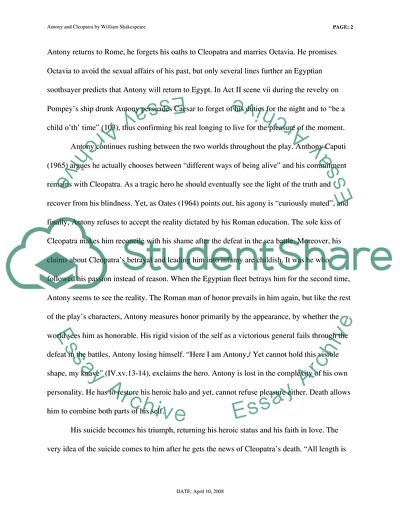Cite this document
(Shakespeare's Tragedy: Antony and Cleopatra Book Report/Review, n.d.)
Shakespeare's Tragedy: Antony and Cleopatra Book Report/Review. Retrieved from https://studentshare.org/literature/1713230-shakespeares-tragedy-antony-and-cleopatra
Shakespeare's Tragedy: Antony and Cleopatra Book Report/Review. Retrieved from https://studentshare.org/literature/1713230-shakespeares-tragedy-antony-and-cleopatra
(Shakespeare'S Tragedy: Antony and Cleopatra Book Report/Review)
Shakespeare'S Tragedy: Antony and Cleopatra Book Report/Review. https://studentshare.org/literature/1713230-shakespeares-tragedy-antony-and-cleopatra.
Shakespeare'S Tragedy: Antony and Cleopatra Book Report/Review. https://studentshare.org/literature/1713230-shakespeares-tragedy-antony-and-cleopatra.
“Shakespeare'S Tragedy: Antony and Cleopatra Book Report/Review”. https://studentshare.org/literature/1713230-shakespeares-tragedy-antony-and-cleopatra.


